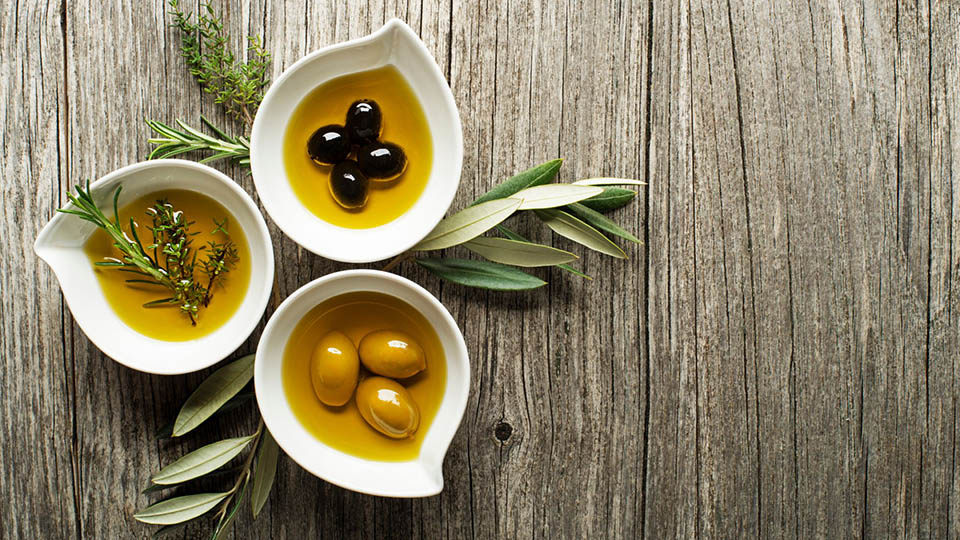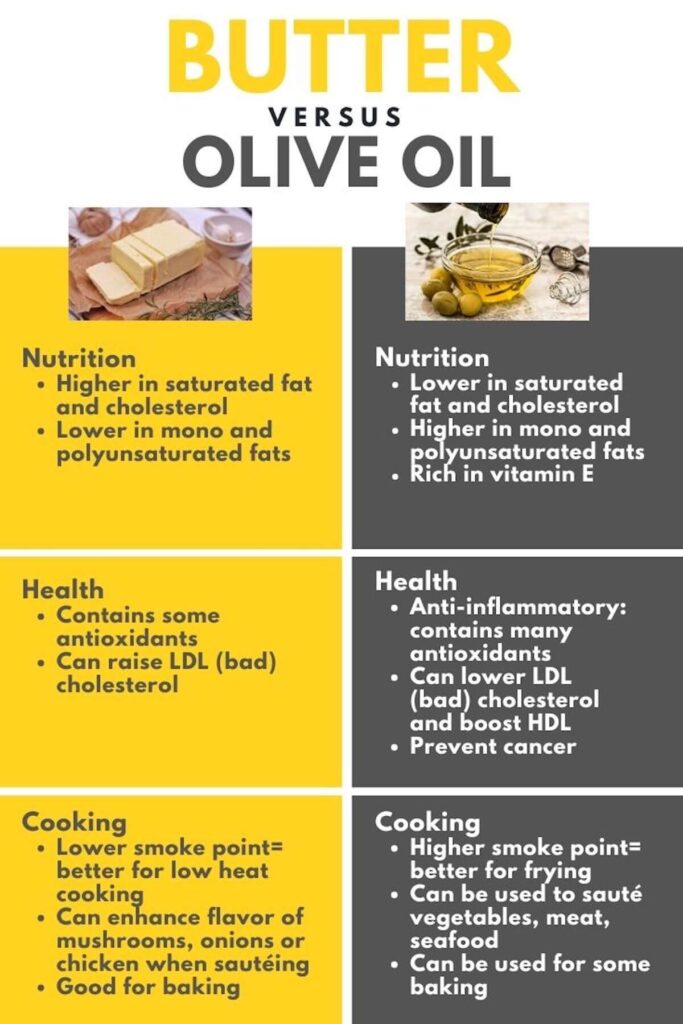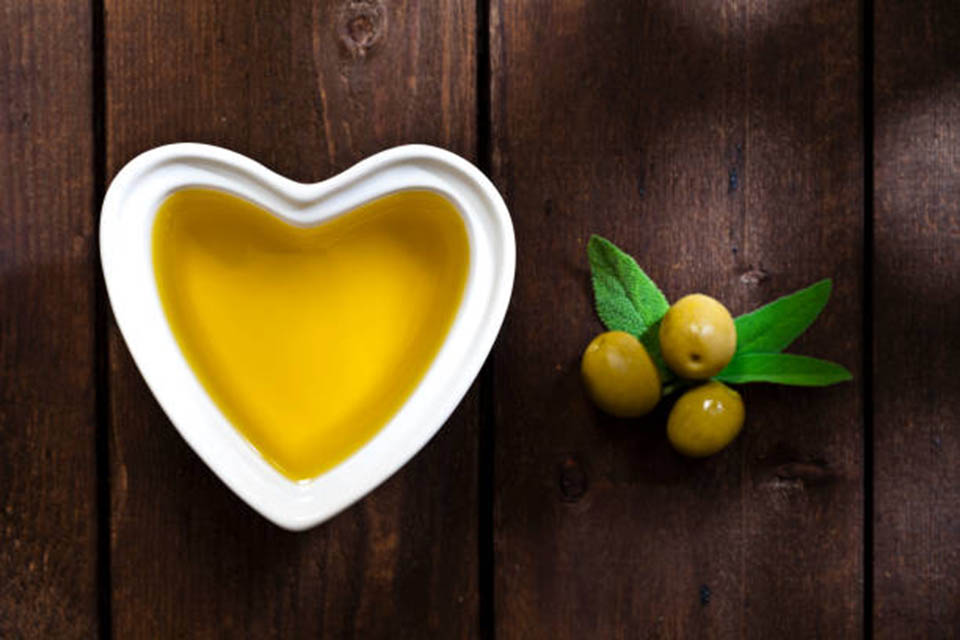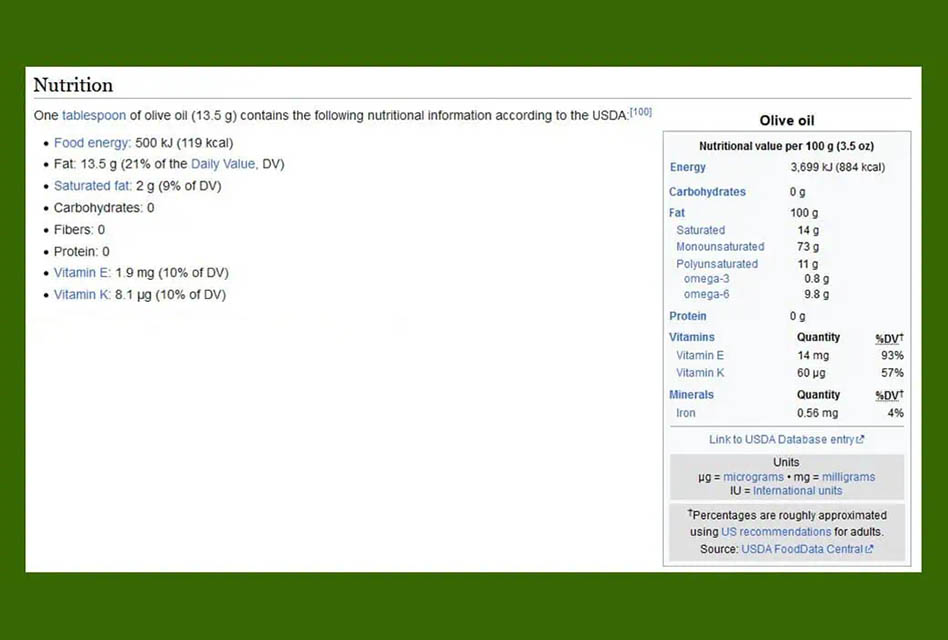Olive Oil reduces your cholesterol – how to use olive oil to lower cholesterol?
Balancing Cholesterol With Olive Oil
What is Cholesterol?
Cholesterol is a waxy, fat-like substance that is essential for many bodily functions, such as producing hormones, vitamin D, and enzymes to digest foods. However, too much cholesterol in the blood can lead to plaque buildup in the arteries, which can increase the risk of heart disease and stroke.
There are different types of cholesterol: low-density lipoprotein (LDL), high-density lipoprotein (HDL), and very low-density lipoprotein (VLDL). LDL is known as “bad” cholesterol because it contributes to plaque formation, while HDL is known as “good” cholesterol because it helps remove excess cholesterol from the body. VLDL carries triglycerides, another type of fat that can also raise the risk of heart disease.
The amount of cholesterol in your blood depends on several factors, such as your genes, your diet, your weight, your physical activity, and your age. While you cannot change your genes, you can modify your lifestyle to lower your cholesterol levels and improve your heart health.
Cholesterol – Chemical formula: C27H46O
– – –
“Cholesterol is the principal sterol of all higher animals, distributed in body tissues, especially the brain and spinal cord, and in animal fats and oils. Cholesterol is biosynthesized by all animal cells and is an essential structural component of animal cell membranes”
“Cholesterol is recycled in the body. The liver excretes cholesterol into biliary fluids, which are then stored in the gallbladder, which then excretes them in a non-esterified form (via bile) into the digestive tract. Typically, about 50% of the excreted cholesterol is reabsorbed by the small intestine back into the bloodstream” (Source: Wikipedia)
Can olive oil lower cholesterol?
Olive oil does not contain cholesterol. Cholesterol is a type of fat that is found in animal products, while olive oil is a plant-based oil derived from olives. Olive oil is primarily composed of monounsaturated fats, which are considered heart-healthy and can help lower levels of LDL (low-density lipoprotein) cholesterol, often referred to as “bad” cholesterol.
Extra Virgin Olive Oil has been credited with balanced cholesterol levels, lower incidences of heart disease and diabetes, and longer life span
This article talks about olive oil’s cholesterol lowering benefits.
What is cholesterol?
Cholesterol is a waxy, fat-like substance that occurs naturally in the body and is found in all cells. Our body needs cholesterol to perform important jobs, such as making hormones and building cells. Two types of lipoproteins carry cholesterol throughout the body:
The LDL (low-density lipoprotein), sometimes called “bad” cholesterol and the HDL (high-density lipoprotein), the good kind of cholesterol, that can lower your risk for heart disease and stroke.
Is all cholesterol bad for you?
No, definitely not. HDL is our heart’s ally, as it removes extra cholesterol, plaque residue, and build-up in our arteries and then sends it to our liver which in turn gets rid of it from our body. Ultimately, this helps reduce our risk of heart disease, heart attack, and stroke.
What’s a healthy level of HDL?
You should aim to have an HDL (high-density lipoprotein) – the good kind of cholesterol) level between 40 and 60 mg/dL, but over 60 mg/dL is ideal. Having HDL under 40 mg/dL increases your risk of developing heart disease.
Where does olive oil come into the picture?
High phenolic extra virgin olive oil can decrease your levels of bad cholesterol (LDL) and increase the good kind (HDL) that keeps your heart healthy and happy. Rich in monounsaturated fats, extra virgin olive oil helps you reach the desired cholesterol levels in your blood. Research shows that by reducing the consumption of saturated fatty acids and replacing them with their monounsaturated counterparts you efficiently reduce the levels of LDL, hence chances of cardiovascular disease.
Extra virgin olive oil is the healthiest fat option, whether you are consuming it raw, cooked, in baked goods, or energy smoothies.
Extra virgin olive oil protects LDL cholesterol (the bad kind) from oxidation, improves the lining of your blood vessels, and it may even help prevent excessive blood clotting. Multiple studies show that diets rich in virgin and extra virgin olive oil (like the Mediterranean) improved key HDL functions, including helping the body remove excess cholesterol from arteries, serving as an antioxidant, and keeping blood vessels open — all of which reduce cardiovascular risk.
Overall, extra virgin olive oil has been credited with balanced cholesterol levels, lower incidences of heart disease and diabetes, and longer life span.
– – –
Read more about cholesterol: “How it’s made: Cholesterol production in your body” (health news from Harvard Medical School)

Impact of Olive Oil on Cholesterol Levels - Is Olive Oil Good for lowering Cholesterol?
Olive oil can be used as a natural cholesterol treatment, extra virgin olive oil in particular can be an effective tool in your arsenal to fight high cholesterol.
Olive oil, with its rich composition of monounsaturated fats and polyunsaturated fats, plays a significant role in maintaining the balance between LDL and HDL cholesterol. These healthy fats have the potential to lower the bad cholesterol (LDL), and simultaneously increase the good cholesterol (HDL). This unique feature makes olive oil stand tall in the world of healthy nutritional oils.
How can we harness these benefits, by incorporating olive oil into our daily diet: by replacing the unhealthy fats lurking in our kitchen shelves with olive oil. Not only will olive oil help in cholesterol treatment but also adds a delightful flavor to our meals.
Research indicates that consuming around two tablespoons of high-quality extra-virgin olive oil daily can have a positive impact on cholesterol levels.
Pairing olive oil with other cholesterol-lowering foods can work wonders for your health. Foods rich in soluble fiber like oats, fruits, vegetables, and legumes are excellent choices. They absorb LDL cholesterol from your bloodstream, while olive oil ensures that HDL levels are up.
A heart-healthy diet doesn’t need to be bland or boring. With olive oil you can savor delicious meals while caring for your heart health.
Regulating cholesterol by using extra virgin olive oil for a healthy diet
Use in your diet Extra Virgin Olive Oil to lower (balance) your cholesterol – lower the “bad” cholesterol (LDL) and increase the “good” cholesterol (HDL)

Nutritional Breakdown Of Olive Oil vs. Butter
See the nutritional showdown between olive oil and butter – some eye-opening differences, particularly with regards to saturated fat and antioxidants:
Table: Nutritional breakdown of olive oil vs unsalted butter per 1 tbsp (All data are derived from USDA Food Data Central)
| Nutrient | Olive Oil (1 tbsp) | Unsalted Butter (1 tbsp) |
| Calories | 119 kcal | 102 kcal |
| Total Fat | 13,5g | 11,5g |
| Saturated Fat | 1,86g | 7,17g |
| Monounsaturated Fat | 9,86g | 3,32g |
| Polyunsaturated Fat | 1,42g | 0,43g |
| Cholesterol | 0mg | 31 mg |
| Vitamin E | 1,94mg (10% DV) | 0,33mg (2% DV) |
Note: Nutritional values may vary slightly depending on the brand and specific type of olive oil and butter used.
As you can see, there are some notable differences. Extra-virgin olive oil triumphs over butter with significantly lower levels of saturated fat and cholesterol. But that’s not all! Olive oil boasts higher amounts of heart healthy fats like monounsaturated fatty acids and polyunsaturated fats, which is why the Mediterranean Diet and olive oil are recommended for heart health.
Besides, olive oil is rich in Vitamin E, which is a great antioxidant that shields our cells from damage caused by free radicals. Which is why olive oil can lower blood pressure.
When it comes to our heart’s well-being, vitamin E has some impressive perks. It helps keep our arteries in check by preventing the oxidation of Low-Density Lipoprotein (LDL) cholesterol aka the “bad” cholesterol, a process linked to the development of artery-clogging plaques. Research shows that a higher intake of antioxidants is linked to a lower risk of coronary heart disease.
So, when it comes to choosing a nutritional champion, olive oil is the best choice and takes the crown with its impressive composition. It’s time to embrace the healthier alternative and savor the benefits to overall health it offers!
Source: https://theheartdietitian.com/butter-versus-olive-oil-for-heart-health/
Scientific research & articles related to Olive Oil use and benefits to human health by lowering cholesterol levels:
Olive oil as medicine: the effect on lipids and lipoproteins
This report focuses on studies examining the effect of olive oil on blood lipids (cholesterol and triglycerides) and
lipoproteins (LDL, VLDL, and HDL). It is the first in a series of reports that summarize published studies examining the
effect of extra virgin olive oil (EVOO) on clinical risk factors for chronic diseases. These reports provide clinicians with
science-based information and practical advice on how to teach patients to incorporate EVOO into the diet.
Extra Virgin Olive Oil Polyphenols Promote Cholesterol Efflux and Improve HDL Functionality
the beneficial role of extra virgin olive of oil (EVOO) consumption towards oxidative stress and cardiovascular diseases. Polyphenols contained in EVOO are responsible for inhibiting lipoproteins oxidative damages and promoting reverse cholesterol transport process via ABCA1 pathway. (National Library of Medicine)
Can olive oil lower cholesterol?
Including olive oil in a healthy diet may help lower “bad” cholesterol and increase “good” cholesterol. “Bad” cholesterol is low-density lipoprotein (LDL) and “good” cholesterol is high density lipoprotein (HDL). (source: Medical News Today)

Additional informational articles on olive oil, cholesterol and EVOO effects to human health:
–
Is Olive Oil good for Cholesterol? Benefits of olive oil against cholesterol
Olive oil and extra virgin olive oil are popular suggestions for food that should be eaten as part of a healthy lifestyle, especially if you are interested in improving your heart health.
–
Extra virgin olive oil linked to lower blood sugar and cholesterol (REUTERS)
Compared to other kinds of fat, extra virgin olive oil may have healthier effects on levels of blood sugar and bad cholesterol after meals
–
Study finds olive oil eases cholesterol (NYT)
Replacing saturated fats with olive oil in food helps reduce cholesterol, according to new research that suggests Mediterranean fare is a healthy alternative to very low-fat diets for people whose cholesterol levels are too high.
–
Two Tablespoons of High Quality Olive Oil Every Day Help Protect the Heart
Even modest daily doses of extra virgin olive oil may protect from atherosclerosis by reducing bad cholesterol
–
11 Proven Benefits of Olive Oil
Olive oil offers health benefits as it is high in healthy monosaturated fats and antioxidants. It also has anti-inflammatory properties. The health effects of dietary fat are controversial. However, experts agree that olive oil – especially extra virgin – is good for human health. The 11 health benefits of olive oil that are supported by scientific research.
–
Is olive oil good for cholesterol and triglycerides?
–
Olive Oil Properties, Ingredients and Types of Olive Oil
–
Frying with olive oil
–
The benefits of olive oil to human health
Olive oil use in nutrition and Heart’s Health

CRITIDA BIO CRETAN OLIVE OIL - Producers of Premium Cretan Culinary Products: Our Food Products are EXPORTED WORLDWIDE to 40+ countries, since 1998 - Join Us!
We are a centuries-long family company (est 1912) in the production of EVOO Olive Oil on the island of CRETE in GREECE. Our Premium Cretan extra virgin olive oil and culinary food products are exported in 40+ countries worldwide to a carefully selected network of partners. CONTACT US, BE OUR NEXT VALUED BUSINESS PARTNER ! for Extra Virgin Olive Oil (EVOO) - Organic (Bio) Extra Virgin Olive Oil (Organic EVOO) - Greek Table Olives - Balsamic Vinegars - Delicatessen, all from CRETE GREECE
Related posts
Olive Oil Ingredients (Chemical Composition of EVOO)
Learn more about the Chemical Characteristics of Olive Oil – Fatty Acids, Trans Fatty Acids,
Event for the promotion of the Traditional Cretan Olive Grove
Information Event for the Promotion of the Traditional Cretan Olive Grove Information Event for the
Why Greece is the word when it comes to olive oil – Greek is the world’s best EVOO
Getting to the Greek: Why Greece is the word when it comes to olive oil (SOURCE: The Independent UK
Baby Nutrition: is Extra Virgin Olive Oil suitable for Babies & Kids Diet?
Is Olive Oil (Especially Extra Virgin Olive Oil) Good for Children’s Nutrition? Extra virgin olive





